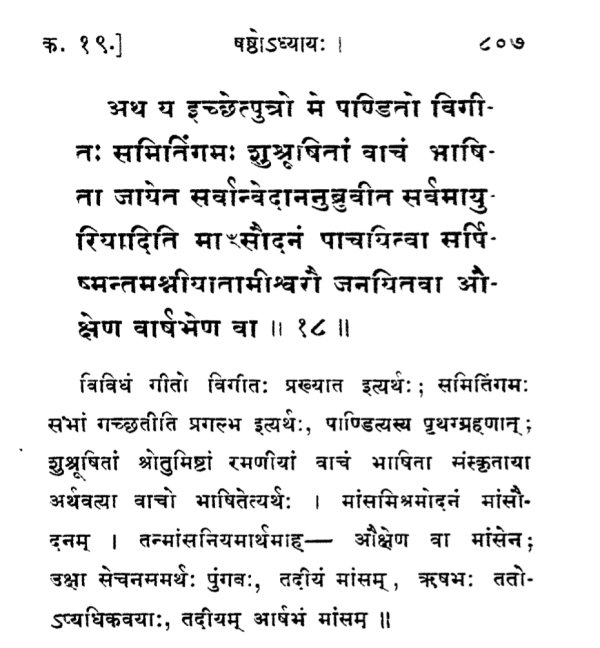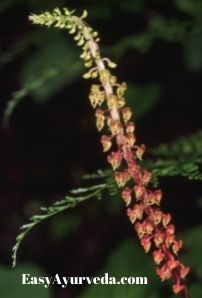Namaskaram brothers and sisters according to the flesh.
I come from a North Indian Yajurvedi Brahmin family of temple priests and scholars (both the modern and sanskritic kinds of scholars in my family).
But perhaps the most scholarly of them all was my late grandfather, who was reputed for hundreds of miles around as a first class jyotishi and sanskrit academic.
However, out of his four sons only two (my dad and uncle) survived to adulthood, to carry his legacy forward, and to understand and make use of his personal Sanskrit works which he wrote for posterity.
Unfortunately, my dad grew up to be a much more modern and scientifically-oriented kind of academic, pursuing his PhD in quantum physics, a subject which continues to take up basically all his time. And my uncle, well, he turned out too stupid (non-gifted) to be any kind of scholar.
Both of them had two kids each, all four male.
My brother and I are quite gifted but unfortunately, stand disqualified for an acharya's training (having voluntarily left hinduism and converted to Islam and Christianity respectively). And my parents are not going to have more kids anymore (done contraception)
And as for my 2 cousin brothers, well they're both endowed with insufficient IQ, just like their dad.
The only way this could work now, is that my uncle and aunt, dumb as they both are, produce a genius child.
And where to look for such wisdom and guidance except in the timeless Upanishads of our ancestors?
We did just that and found guidance in the Brihadaranyaka Upanishad.
Verse 6.4.18 reads "And if a man wishes that a learned son should be born to him, famous, a public man, a popular speaker, that he should know all the Vedas, and that he should live to his full age, then, after having prepared boiled rice with meat and butter, they should both eat, being fit to have offspring. The meat should be of a young or of an old bull."
Sounds exactly the kind of son my uncle wants, but as you must have read, it requires both my uncle and aunt to eat an old bull's meat.
Although of course, we are all supposed to be vegetarians, and they intend to stay so all the rest of their lives, can they be allowed to have boiled rice and bull meat just once in their lives as it's an emergency situation for we want to carry our patriarch's legacy forward, and for the conservation and transmission of his secret superpowers to the coming generations of Bharatiyas??
Thank you and God bless you all .
.
I come from a North Indian Yajurvedi Brahmin family of temple priests and scholars (both the modern and sanskritic kinds of scholars in my family).
But perhaps the most scholarly of them all was my late grandfather, who was reputed for hundreds of miles around as a first class jyotishi and sanskrit academic.
However, out of his four sons only two (my dad and uncle) survived to adulthood, to carry his legacy forward, and to understand and make use of his personal Sanskrit works which he wrote for posterity.
Unfortunately, my dad grew up to be a much more modern and scientifically-oriented kind of academic, pursuing his PhD in quantum physics, a subject which continues to take up basically all his time. And my uncle, well, he turned out too stupid (non-gifted) to be any kind of scholar.
Both of them had two kids each, all four male.
My brother and I are quite gifted but unfortunately, stand disqualified for an acharya's training (having voluntarily left hinduism and converted to Islam and Christianity respectively). And my parents are not going to have more kids anymore (done contraception)
And as for my 2 cousin brothers, well they're both endowed with insufficient IQ, just like their dad.
The only way this could work now, is that my uncle and aunt, dumb as they both are, produce a genius child.
And where to look for such wisdom and guidance except in the timeless Upanishads of our ancestors?
We did just that and found guidance in the Brihadaranyaka Upanishad.
Verse 6.4.18 reads "And if a man wishes that a learned son should be born to him, famous, a public man, a popular speaker, that he should know all the Vedas, and that he should live to his full age, then, after having prepared boiled rice with meat and butter, they should both eat, being fit to have offspring. The meat should be of a young or of an old bull."
Sounds exactly the kind of son my uncle wants, but as you must have read, it requires both my uncle and aunt to eat an old bull's meat.
Although of course, we are all supposed to be vegetarians, and they intend to stay so all the rest of their lives, can they be allowed to have boiled rice and bull meat just once in their lives as it's an emergency situation for we want to carry our patriarch's legacy forward, and for the conservation and transmission of his secret superpowers to the coming generations of Bharatiyas??
Thank you and God bless you all




